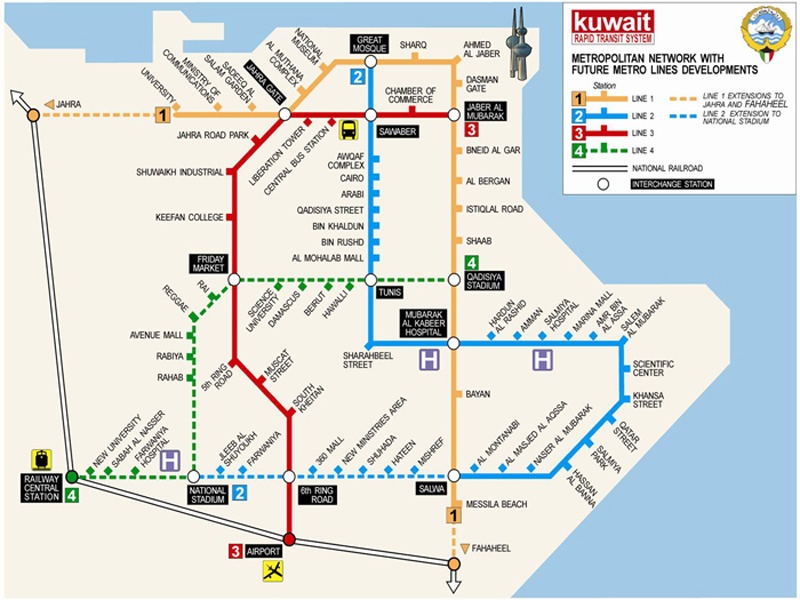
KUWAIT: The Kuwait Authority for Partnership Projects has finished procedures to offer the highly-anticipated railway project tender for bidding with a maximum total cost of KD 856 million, Al-Qabas reported recently quoting sources familiar with the process. The project includes building the infrastructure, terminals, control systems and trains of the railway line, which is due to extend from the southern borders with Saudi Arabia to a terminal in Kuwait City, then to Boubyan Port via the projected Silk City.
A study prepared by the project's consultant pointed out that the project would be executed according to the public-private-partnership (PPP) model in order to achieve greater economic feasibility and save around 28 percent of the cost (around KD 400 million). "Forty four percent of the project's investment will be allocated to the private sector, six percent for government investment bodies and 50 percent for citizens through an IPO," the sources explained.
The sources added that according to the project's feasibility study, returns are estimated at 12 percent, while the nominal cost of both partnership contracts are estimated at KD 4.8 billion, including both companies' paid capital for 30 years; that is KD 160 million annual payments. The sources also explained that the nominal cost of the services contracts will be KD 395.5 to be paid as KD 13.2 million annual payments for 30 years. Moreover, the study, which cost KD 1.5 million, said that a company for infrastructure and another for the lines, terminals and train systems would be offered for bidding.
The study also noted that Kuwaiti shareholding companies would be founded to execute the project, and thus creating more job opportunities for citizens. The project will also help boost stock exchange trading and help train national manpower on the knowhow of running the project by international private sector experts.
Notably, the planned grid will be 574 kilometers long extending from north to south and east to west connecting Kuwait to Saudi Arabia and Iraq. It will include 317 kilometers as main lines serving short term needs and 257 kilometers long secondary lines serving long term needs. The project will serve passengers at 220 kph speed and cargo at 120 kph speed, as regulated by the GCC railways network.










